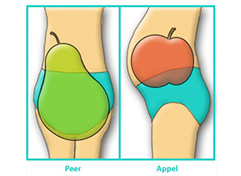
Opdrachtgever: MUMC/LifeScan
Project: DIEP
Project: DIEP
Client: MUMC/LifeScan
Project: DIEP
Project: DIEP
DIEP
DIEP
DIEP is gericht op mensen die nog niet zo lang weten dat ze type 2 diabetes hebben én hun zorgverleners. Met het programma wordt duidelijk hoe diabetes en de behandeling daarvan met het dagelijks leven zijn verweven. Het programma leert de patiënt daar zelfstandig mee om te gaan.
De DIEP projectgroep is een samenwerkingsverband tussen het academisch ziekenhuis Maastricht en de Universiteit Maastricht. DIEP is financieel en logistiek mede mogelijk gemaakt door LifeScan, een Johnson & Johnson bedrijf. Het programma wordt ook gebruikt in onderzoek van de Universiteit Maastricht naar de effectiviteit van opleiding aan patiëntbegeleiders.
Emmia heeft DIEP ontworpen, vormgegeven en geproduceerd. Het programma is gebruikt in de periode 2006-2013. Sinds maart 2013 draait een nieuwe release van DIEP die in eigen beheer door Stichting DIEP is ontwikkeld.
Diabetes komt veel voor. In Nederland zijn nu zo’n half miljoen mensen bekend met diabetes. Steeds meer mensen hebben kans om type 2 diabetes te ontwikkelen. Dat komt vooral doordat in de bevolking sprake is van toenemend overgewicht en te weinig beweging, en omdat het aantal ouderen en mensen van allochtone afkomst toeneemt.
De DIEP projectgroep is een samenwerkingsverband tussen het academisch ziekenhuis Maastricht en de Universiteit Maastricht. DIEP is financieel en logistiek mede mogelijk gemaakt door LifeScan, een Johnson & Johnson bedrijf. Het programma wordt ook gebruikt in onderzoek van de Universiteit Maastricht naar de effectiviteit van opleiding aan patiëntbegeleiders.
Emmia heeft DIEP ontworpen, vormgegeven en geproduceerd. Het programma is gebruikt in de periode 2006-2013. Sinds maart 2013 draait een nieuwe release van DIEP die in eigen beheer door Stichting DIEP is ontwikkeld.
Diabetes komt veel voor. In Nederland zijn nu zo’n half miljoen mensen bekend met diabetes. Steeds meer mensen hebben kans om type 2 diabetes te ontwikkelen. Dat komt vooral doordat in de bevolking sprake is van toenemend overgewicht en te weinig beweging, en omdat het aantal ouderen en mensen van allochtone afkomst toeneemt.
DIEP is aimed at people who have not yet known that they have type 2 diabetes and their healthcare providers. The program makes it clear how diabetes and its treatment are intertwined with daily life. The program teaches the patient to deal with this independently.
The DIEP project group is a partnership between Maastricht University Hospital and Maastricht University. DIEP was made possible financially and logistically by LifeScan, a Johnson & Johnson company. The program is also used in research by Maastricht University into the effectiveness of training patient supervisors.
Emmia designed, designed and produced DIEP. The program was used in the period 2006-2013. Since March 2013, a new release of DIEP has been running, developed in-house by the DIEP Foundation.
Diabetes is common. In the Netherlands, about half a million people are now known to have diabetes. More and more people are at risk of developing type 2 diabetes. This is mainly because the population is increasingly overweight and lacks exercise, and because the number of elderly people and people of immigrant origin is increasing.
The DIEP project group is a partnership between Maastricht University Hospital and Maastricht University. DIEP was made possible financially and logistically by LifeScan, a Johnson & Johnson company. The program is also used in research by Maastricht University into the effectiveness of training patient supervisors.
Emmia designed, designed and produced DIEP. The program was used in the period 2006-2013. Since March 2013, a new release of DIEP has been running, developed in-house by the DIEP Foundation.
Diabetes is common. In the Netherlands, about half a million people are now known to have diabetes. More and more people are at risk of developing type 2 diabetes. This is mainly because the population is increasingly overweight and lacks exercise, and because the number of elderly people and people of immigrant origin is increasing.


